In the 1500s scholars in northern Italy began questioning the traditional doctrine of the Trinity. Before long the Inquisition forced these burgeoning Italian biblical unitarians to flee, resulting in the spread of their ideas to other parts of Europe. The two most significant groups that emerged were the Polish Brethren and the Unitarian Church of Transylvania. In this lecture, you’ll learn about this interesting though typically overlooked chapter of church history.
This is lecture 6 of a history of Christianity class called Five Hundred: From Martin Luther to Joel Osteen.
All the notes are available here as a pdf.
—— Notes ——
“Not only psychopannychism but also Antitrinitarianism was to find its fullest ecclesial expression in Polish Socinianism and Hungarian Unitarianism. The leaders of these two parallel and closely interrelated movements…were Italians or palpably dependent upon Italians.”[1]
Italian Roots
- Marsiglio Ficino (Marsilio Ficino) (1433-1499)
- Subordinated Son to Father
“Made bold to translate Verbum as sermo, thereby sloughing off the philosophically freighted conception of Christ as the Eternal Word (Logos, Verbum), as the Mind and Instrument of God, and substituting the idea of Christ as merely the voice of God. Although Ficino, basing his thought allegedly on Paul, wrote of approaching the preached sermo with the same reverence as the eucharistic corpus, he had started a train of thought that would equate the Word with the prophetic vox of the Old Testament, and even with rational meditation and literary scripta, and which would inevitably render philosophically difficult the received formulation of the Logos-Son as consubstantial with the Father.”[2]
- 1540s – Vicenza Society
- Vicenza is a city in Italy that had a strong unitarian church
- Fled and ended up all over Europe in Moravia and Switzerland
- Lelio Sozzini (1525-1562)
- Part of the Vicenza Society, a leader
- Visited Poland in 1551
- Fausto Sozzini (1539-1604)
- Went to Poland and Hungary and worked with unitarians there
- In 17th, people started calling the Polish brethren “Socinians”
Polish Brethren (1565-1658)
- Also called Minor Reformed Church of Poland and Socinians by outsiders, but called themselves “brethren” or “Christians”
- Peter Gonesius (1525?-1573)
- Studied at University of Padua in northern Italy and graduated with a doctorate in philosophy
- 1556 – Synod of Secemin: excommunicated for non-Trinitarian beliefs
- Became the leader of the Ecclesia Minor in Poland along with Marcin Czechowic
- Georg Schomann (1530-1591)
- Left a letter to children and grandchildren (a kind of will)
“If you want to find out these things yourselves, there is my second catechism which I compiled from Holy Scripture privately for you. It explains about the Most High God the Father and the Lord Jesus Christ, man, only begotten Son of God our Lord, who are to be worshipped in spirit and in truth…May your understanding of God be that which we have from the prophets of Israel and not after the fashion of the Lutherans and Papists.”[3]
-
- In 1574, a little work, Confession of Faith of the Congregation Assembled in Poland (thought to be Schonmann’s work)
“The little and afflicted flock in Poland, which is baptized in the name of Jesus of Nazareth, sends greeting to all those who thirst after eternal salvation; praying most earnestly that grace and peace may be shed upon them by the one supreme God and Father, through his only begotten Son, our Lord Jesus Christ, who was crucified….Jesus, our mediator before the throne of God is a man, who was formerly promised to the fathers by the prophets, and in later days was born of the seed of David, and whom God, his Father, ‘has made Lord and Christ,’ by whom he created the new world, to the end that, after the supreme God, we should believe in him, adore and invoke him, hear his voice, imitate his example, and find in him rest to our souls.”[4]
-
- 1579 – Fausto Sozzini joined the church but never became a full member
- The Racovian Academy (1602-1638)
- Had at its height 1,000 students
- Had about 300 churches
- 1605 – Racovian Catechism
- written by F. Sozzini’s grandson Andrzej Wiszowaty (Andreas Wissowatius) (1608-1678) and Joachim Stegmann (1595-1633)
- By the “Brethren in Poland and Lithuania who confess one God the Father”
- Reprinted as late as 1818, brought back into print by Spirit & Truth Fellowship International in late 20th
- Persecution
- In 1611 in Warsaw, Jan Tyshkovych executed for refusing to swear by the triune God
- Catherine Vogel burned at the stake
- 1638: students from the Racovian Academy stoned a cross and Jesuits shut it down
- 1650s war and expulsion
- 1658, King Casimir
“In the name of the Lord, Amen. We, Jan Casimir, by the grace of God King of Poland…Although the public law always forbade the Nowochrzczency (Anabaptist) sect to exist and propagate in our dominions, yet by some fatal misfortune the said sect, which rejects the pre-eternity of the Son of God, began not long since to spread in our dominions. We do ordain…that if anyone of this kind is found who dares or attempts to profess, spread, or preach this sect, or to protect or support it or its advocates, shall without delay be capitally punished…Yet, desiring to show our clemency, if any such person is found who will not renounce this sect, we allow him three years in order to sell his property, etc. During this time, however, he is forbidden to perform any exercises of this sect or to take part in any public offices, subject to the penalties above…”[5]
-
-
-
- July 20, 1658 – Polish Parliament expelled Brethren,
-
-
“The toleration granted to dissenters from the church does not legally extend to unitarians whom they call anapbaptists, this being a new heresy. Therefore all who within such a limited time will not embrace the Roman Catholic religion shall be banished out of Poland; allowing however, two years to sell their estates, whether real or personal.”[6]
-
-
-
- Anonymous response to this edict:
-
-
“The charge is that we are enemies of the pre-eternity of the Son of God, that we deprive him of this. But we attribute to the Son of God whatever Holy Writ clearly attributes to him. In the most excellent and the fullest way that can be conceived and that can be, he is truly the only begotten Son of God the Father, with a name that is exalted above every name. If we cannot reconcile the pre-eternal generation of both the Father and the Son, if we cannot comprehend how they can both be co-eternal, both begetter and begotten, if these things pass our understanding, if we do not see how they agree, is this a crime to be paid for by death?Our case is one of steadfastness of faith in God, of escape from papal superstition and tyranny, and, in general, the desire for a good conscience. We refuse to desert to the enemy, choosing the command of God rather than the inventions of men, Christ rather than the Pope. Our conscience is good, bound to no wickedness, crime or disgrace, dangerous to no one, friendly to all, proved by an endeavor to lead a blameless life, simply devoted to the one God and the oracle of God”So, as we go into exile, no sure and safe home presents itself. Shut out of our land, we find almost the whole world closed against us. We have no way to support ourselves in exile. Our property is left behind. Our money was seized by soldiers or consumed as we led our wandering life. Our estates and farms are left behind ruined, wasted, and despoiled, ravaged by fire and sword. The frightful prospect of an unjust exile drove many of the more wealthy to defection. They professed themselves ready to die, but with wives and children they could not bring themselves to incur the hazard of the most wretched poverty. Those who had the greater abundance deserted Christ; those who had the more courage followed him. For those certainly desert Christ who abandon conscience. Rather than abandon that, we have determined to give up all else.”[7]
-
-
-
- Great migration began to Prussia, Silesia, Moravia, Russia, Transylvania, Netherlands, and even England.
- 1665-1668 – Andreas Wissowatius got the Library of the Polish Brethren called Unitarians printed in Amsterdam
- First volume included the writings of Fausto Sozzini, which is why the Polish Brethren were later called “Socinians”
- John Locke, Voltaire, and Isaac Newton later owned copies of this library
-
-
Transylvanian Unitarians
- Ferenc David (1510?-1579)
- Studied in Wittenberg and Frankfurt, then became Calvinist bishop
- Appointed court preacher to John Sigismund Zapolya
- 1565 – doubted the Trinity b/c of no scriptural basis for personality of the holy spirit
- 1566 – began preaching the one God
- Appealed to Parliament
- John Sigismund Zapolya (1540-1571)
- Promoted religious toleration
- 1568 – John issued the Edict of Torda, promoting religious freedom
- Sigismund was the first and only Unitarian king in history
- 1568 – David founded Unitarian Church of Transylvania
- 12 point confession: “We believe
- In one almighty God;
- In Jesus Christ, son of God by the virgin Mary;
- In one holy spirit, the power of God;
- In one holy Christian church;
- That kings and magistrates are ordained of God;
- In holy baptism in water: by it we are initiated into Christ, become an effective member of the church, and declare our profession in Christ and desire to amend our ways;
- That the communion of the supper is a remembrance of Christ;
- The human race we believe to be ‘under sin,’ but we can be justified by the grace of God. Through that grace we receive remission of sins;
- Faith involves keeping the commandments of Christ;
- We look for the glorious advent of our savior Christ;
- We believe in the resurrection of the body, both of the just and the unjust;
- We believe that the faithful will be granted to be with Christ and to sit down with him wherever his throne will be. There shall be eternal happiness and we shall be ever with the Lord.”[8]
- 1571 – Stephen Bathory, a Roman Catholic, succeeded John Sigismund
- 1572 – David denied need to invoke Jesus in prayer
- David was tried and imprisoned
- 1579 – died in prison
- Early on, the church had 425 parishes
- 1658 – many refugees from Poland joined
- Adrzej Wiszowaty Jr. (Andreas Wissowatius Jr.) (1690?-1740?), great-great grandson of Fausto Sozzini came and taught at the Unitarian College in Cluj in the 1730s
- Mihaly Lombard de Szentabraham (1683-1758)
- Hungarian Unitarian bishop who bolstered the movement during a period of decline
- 1720 – became director of John Sigismund Unitarian Academy while Wissowatius was there teaching
- Wrote statement of belief called Summa Universae Theologiae Christianae secundum Uniatrios (published posthumously in 1782)
- The Unitarian Church of Transylvania survives today
- Based in Cluj, Transylvania, Romania
- Runs a section of the Protestant Theological Institute of Cluj
- Runs the John Sigismund Unitarian Academy (founded in 1554)
- In 2002, there were 66,846 Romanian citizens of Unitarian faith
- Church officials say the number is between 80,000 and 100,000
In 2006, there were 141 congregations in Romania and 110 Unitarian priests (mostly in Transylvania)
[1] George Williams, The Radical Reformation (Kirksville, MO: 2000 Truman University Press), p. 70.
[2] Williams, p. 71
[3] Alan Eyre, The Protesters (Worcester, UK: Billing & Sons 1985), p. 117.
[4] Eyre, pp. 117-8.
[5] Eyre, p. 126.
[6] Eyre, p. 127.
[7] Eyre, p. 127.
[8] Eyre, p. 129.
—— Links ——
- For an evaluation of the Socinian view of atonement, read about their Moral Exemplar Theory
- See all the episodes of Five Hundred: From Martin Luther to Joel Osteen.
- The three main textbooks for this class include:
- The European Reformations by Carter Lindberg
- The Radical Reformation by George Williams
- Modern Church History by Tim Grass
- Check out these other Restitutio historical podcasts
- Intro music: “District Four” by Kevin MacLeod. Licensed under Creative Commons: By Attribution 3.0 License.

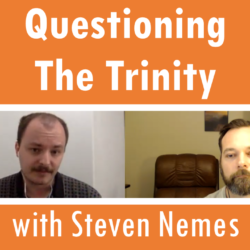
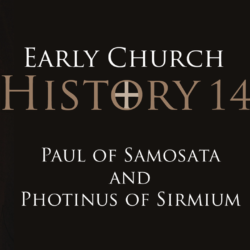
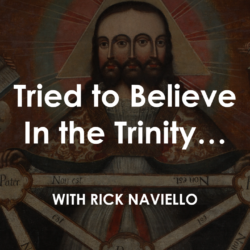
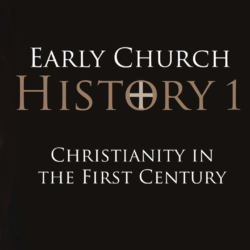
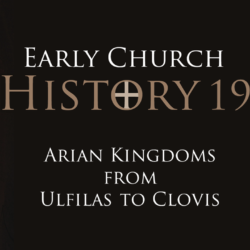
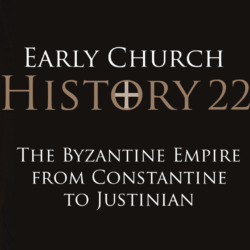
Hello!
I would like to know what is the situation of the socinian unitarians today. I mean not universalists, but those who beleive in the living Jesus, according to the Rakowian catechism.
Thank you!
To find others with a Socinian christology, visit unitarianchristianalliance.org
Check out ‘The Restoration Fellowship’ and brother, Sir Anthony Buzzard – and God bless you, Rares..
Thanks John,
Just click on “Links” tab: https://focusonthekingdom.org/
Thanks, Carlos – God bless you,sir ! (and all yours).